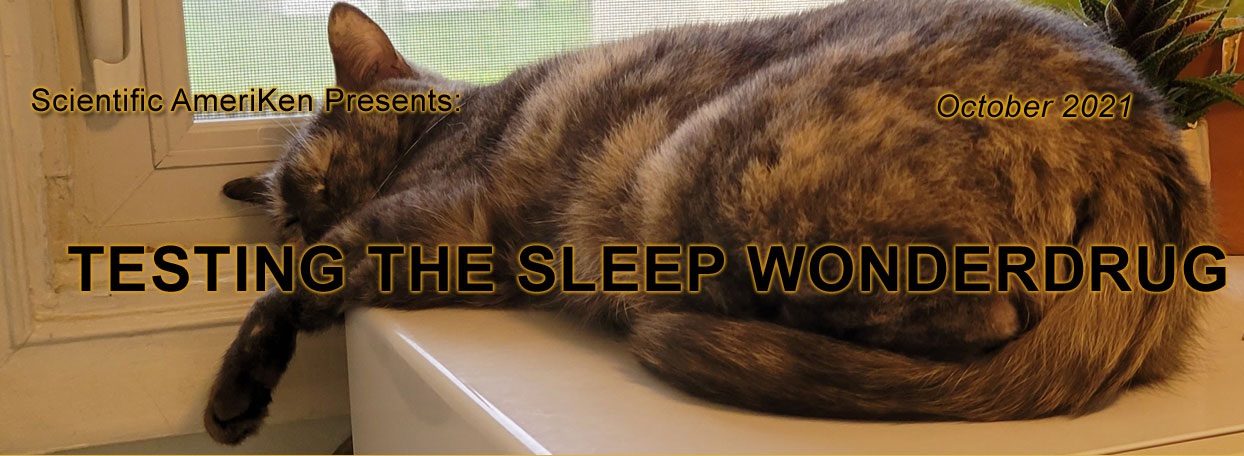
![]()
Although many questions remain as to what sleep is it is still clear that for humans and many animals alike - it is necessary. Yet, the notion of sleep is at odds with the many entertainment options the modern world offers. Sleep is boring. The goal of this experiment is not to fix that. Rather, it is to see if sleep accomplishes everything *they* say it does. Specifically, due to late night chess addictions, ScientificAmeriKen has been suffering with low sleep for extended periods of time. This experiment will test the impossible - the effects of going to bed on time.
![]()
Sleep is supposed to be pretty good. It is therefore the hypothesis that getting some will be a good thing - meaning better scores on the sleep surveys.
![]()
Surveys will be taken and Sleep will be tracked via Fitbit before and after an attempt is made to go to bed early. Test includes: The Holland sleep disorders survey (captures severe sleep isues); The Pittsburgh Sleep Quality Index; The Insomnia Severity Index; The Brief Fatigue Inventory; The Epworth Sleepiness Scale; The Hospital Anxiety and Depression Survey; and the Morningness/Eveningness questionaire that determines if you are a morning or evening type person. Time of poor sleep behavior is uncertain, potentially months or years. A total of 30 days was dedicated to getting proper sleep. Fitbit use was only a fraction of these days due to it not being very comfortable during sleep.
![]()
Days Tracked: Ave. Total Sleep (min): Ave. Light Sleep (min): Ave. Deep Sleep (min): Ave. REM Sleep (min): Ave. Awake (min): Ave. Awake episodes:
Holland Sleep Disorders Pittsburgh Sleep quality Index Insomnia Severity Index Brief Fatigue Inventory Epworth Sleepiness Scale Hospital Anxietry Scale Hospital Depression Scale Morningness-Eveningness Questionaire
![]()
Going to bed early does appear to increase the total amount of sleep. Most notably was a near doubling of the amount of REM sleep - which is believed to be very important for the recently discovered glymphatic system and functions to remove waste products from the brain. Impressively, better scores were seen in virtually every sleep survey taken. This was especially true for the Epworth sleepiness Scale that measures a person's tendency to want to fall asleep during activities like reading, driving, or otherwise. Also interesting was the depression index going from 7 to 2 -- although both scores register as "normal", coupled with our previous study on the effect of social media and news on depression, it is very clear we should all turn off our TVs and just go to bed! In sum, the data here paints a very clear picture that the impacts of lack of sleep are affecting ScientificAmeriKen, and indeed this will be taken into consideration when determining the time to go to bed - but after just one more game of chess.
Special thanks to fellow scientist Carleara Weiss for providing the sleep analysis surveys and helping with the interpretation! On with science and on with sleep!
![]()